Local businesses have a unique challenge when it comes to marketing. While you might think that online marketing for local businesses should be easier because they operate in a smaller area, in fact, it is often the opposite.
Local businesses not only have to find their ideal target customer, like everyone else, but they also have to do so with smaller audience numbers. This makes it tricky to target as specifically as they may want while still having a large enough audience to target.
Here are some ways that businesses can leverage local online marketing opportunities to level up their efforts!
1. Optimize Your Google Business Profile Listing
Dig into your Maps listings and make sure they are well optimized and complete. You’re able to fill out an “About” section, hours, contact information, and more! I highly recommend ensuring that your listings are comprehensive, with pictures and reviews.
Within Semrush’s Listing Management tool, you can plug in your business and get graded on your local listing’s presence. It will also help you identify areas where your business isn’t showing up!
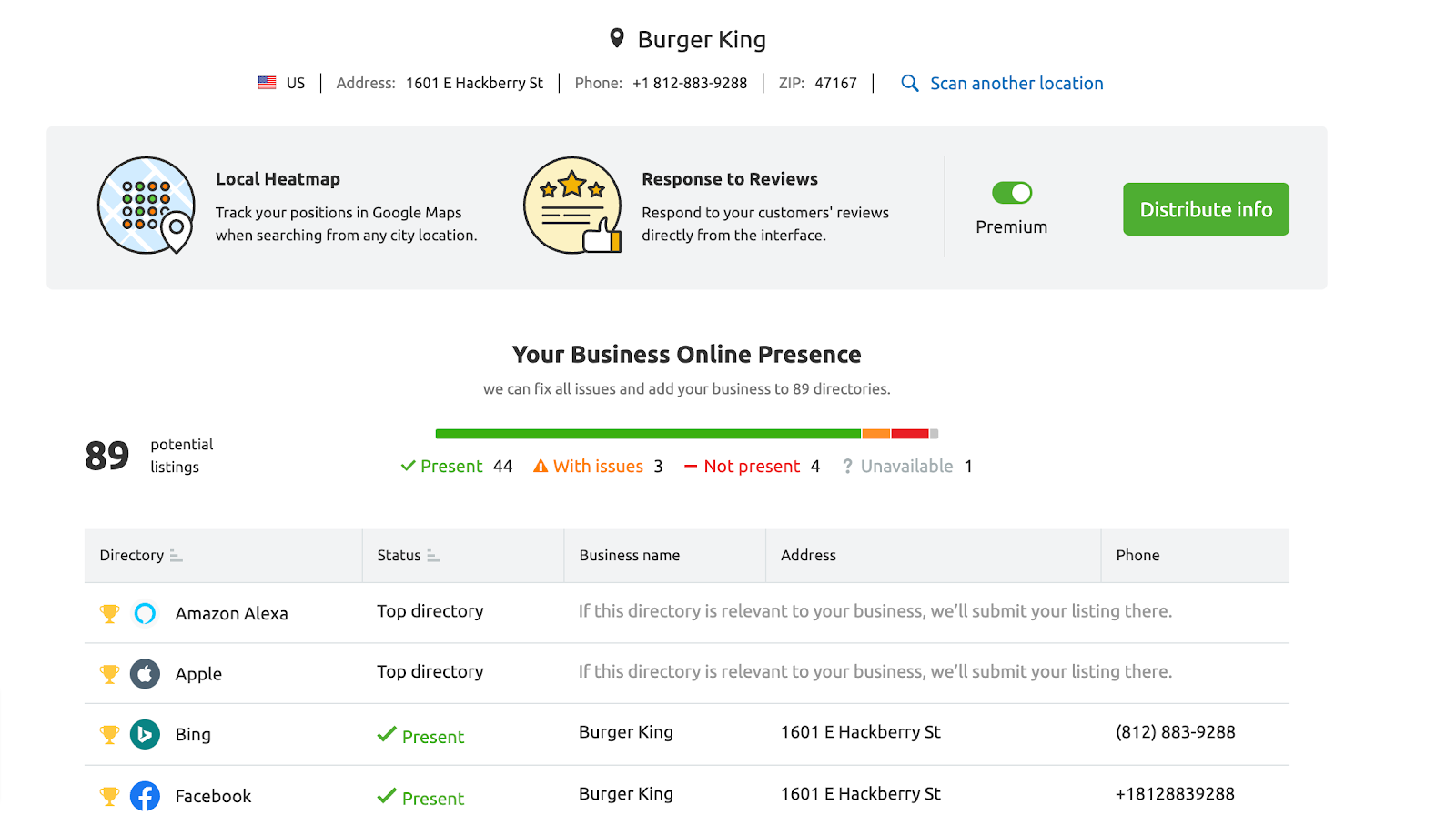
2. Geofencing Campaigns
Geofencing campaigns allow for targeting a very small custom-defined perimeter around specific locations of your choosing.
Consider leveraging geofencing campaigns to take advantage of your prospect’s location and the information that you can infer. Geofencing creates a wide array of opportunities to target your prospects.
For example, you can target folks who are at competitors’ locations in order to identify potential prospects.
You can also use a prospect’s location — even if not at a competitor’s storefront — to learn things about them. For instance, you could target a sports stadium during sporting events if your target market was likely to be at those events. Or, you could target home improvement stores if you wanted to target folks who were likely to own their home.
3. Geotargeted Search Campaigns
If geofencing isn’t your thing (or even if it is!), tightly geotargeted campaigns can work well, too.
The difference between geofencing and geotargeted campaigns is that all geofenced campaigns are tightly geotargeted but not all tightly geotargeted campaigns utilize geofencing.
What I mean by that is, geofencing campaigns require a special platform or agency in order to design custom perimeters around small locations. Most of the major platforms won’t allow advertisers to target less than a 1-mile radius around a specific map coordinate. That type of targeting can still be a huge help for advertisers but isn’t nearly as granular as geofencing campaigns can be.
Geotargeted campaigns allow you to target a small local area, to ensure that you aren’t getting nose from potential prospects that are too far away.
You can take that one step further by implementing a staggered approach for geotargeting based upon the prospect’s searches. For example, a prospect who searches non-brand is less likely to travel very far as they don’t have a specific brand in mind and may prioritize convenience. Folks who are searching for a specific brand tend to be more likely to travel further.
Last but not least, if the keyword includes the geography, then you can target a broader area, knowing that they intend to be within your local area based upon their search.
For instance, if you were a realtor in Chicago and you wanted to target folks searching for houses, you would likely keep a Chicago-based geotarget for folks searching nonbrand “houses for sale” type of terms. However, you could target the whole country for folks searching things like “houses for sale in Chicago” because it shows intent to buy a house in Chicago, even though they aren’t currently local.
Plus, if you have your Google Business Profile location set up and linked as an ad extension, you can be eligible to deliver ads within the map itself as prospects are searching.
You can use the Keyword Magic tool to get keyword ideas and get an idea of the Competitive Density, or competition level for advertisers, for that keyword.
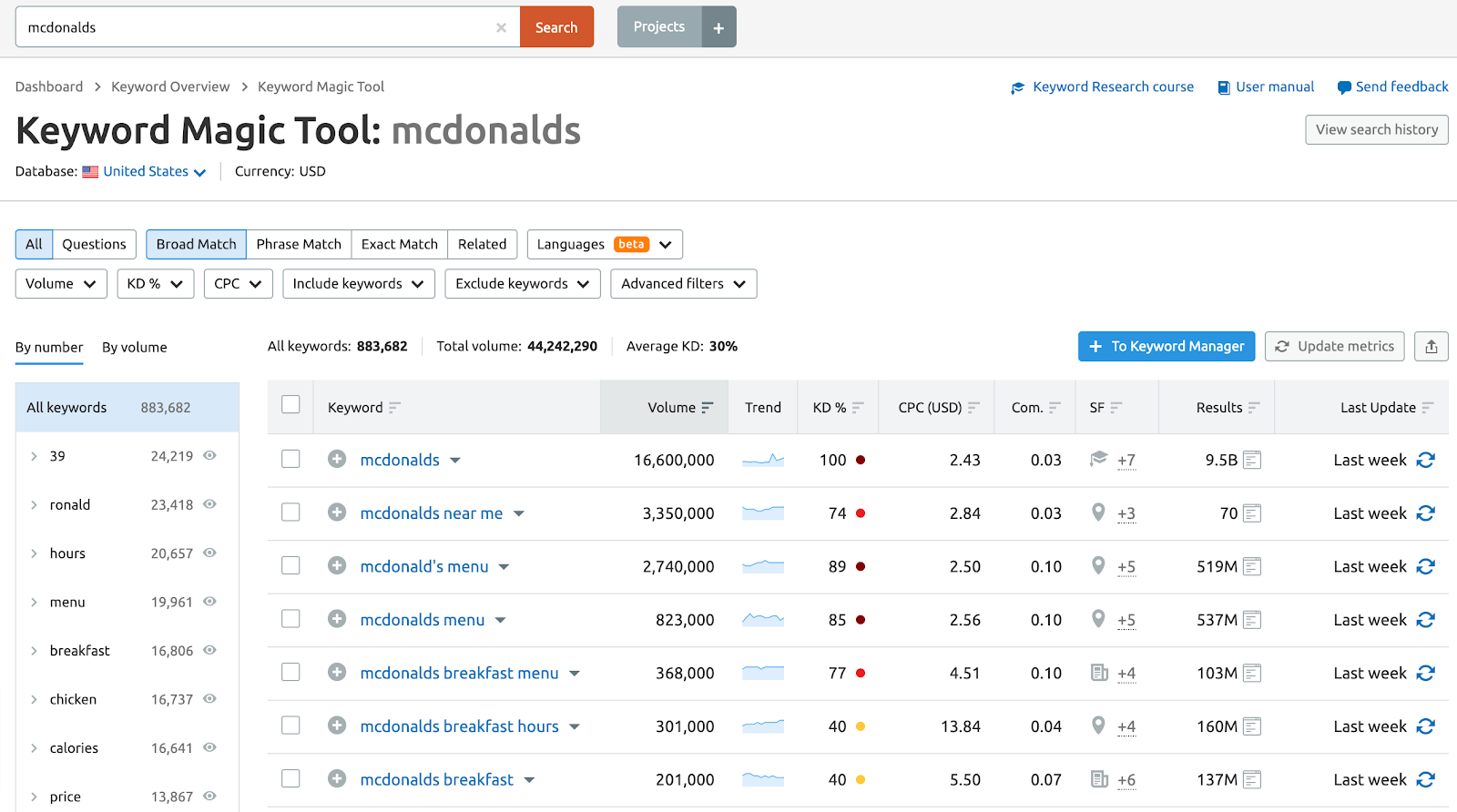
Additionally, you can check out the Keyword Gap tool to identify where you might be missing keywords that your competitors are bidding on and, bonus, what they are ranking for organically!
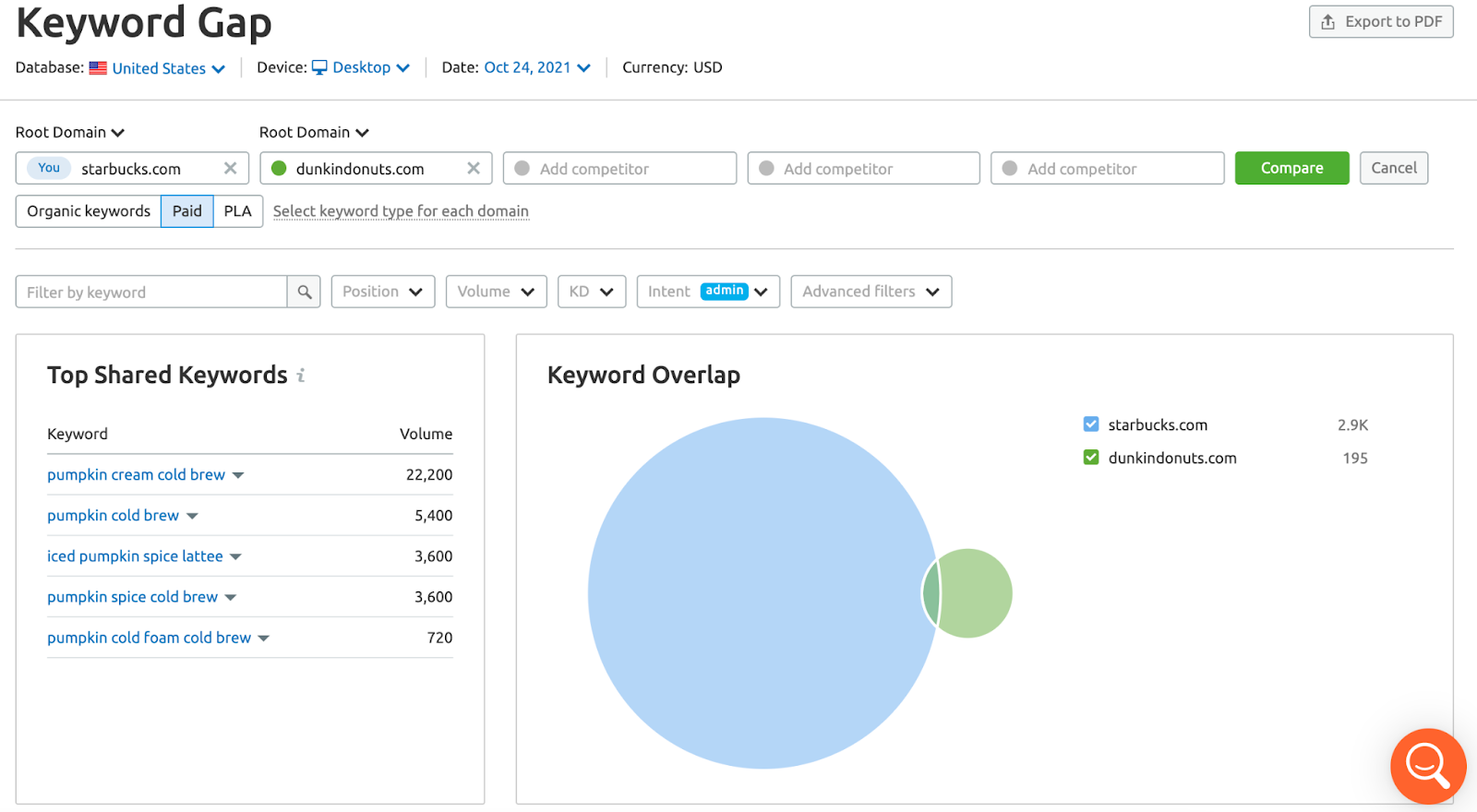
4. Google Ads Local Campaigns
Google has a campaign type called “Local Campaigns”, which focuses on driving local conversions, including things like getting directions, in-store visits, and more. These campaigns are a bit more automated than typical search campaigns but can be beneficial to test along with your regular search campaigns.
5. Local Inventory Ads
Google allows local merchants to use Local Inventory Ads, which are very similar to shopping ads, in that they are feed-based ad units and they appear toward the top of the SERP alongside other shopping ads.
They include images, reviews, pricing, and more! The benefit of local inventory ads is that they showcase products that are currently in stock, locally on the shelves, encouraging foot traffic from interested prospects.
You can leverage the PLA Research tool within Semrush to research the types of terms that are triggering your competitors’ shopping campaigns, in case you need ideas for how to better optimize your feed. You can also preview what your competitors’ ads look like!
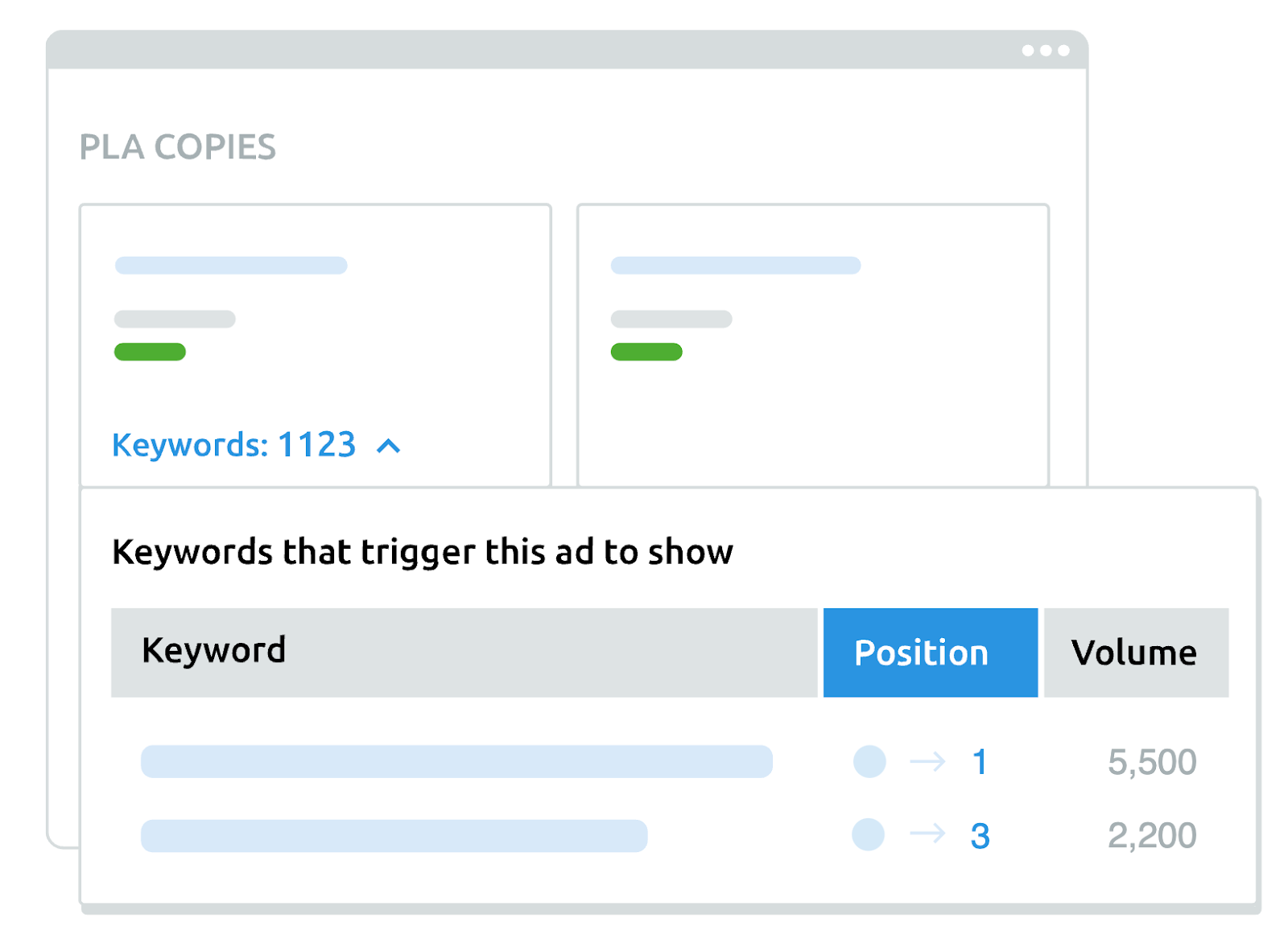
6. Google Display and Remarketing
Google Display and Remarketing campaigns can be used to build awareness of your brand at a local level. You can target your local geography and then use additional targets such as demographics, remarketing lists, topics, affinity audiences, and in-market audiences to identify the relevant folks who should see your ad.
Use Semrush’s Display Advertising tool to get ideas for ads and to monitor what your competitors are doing.
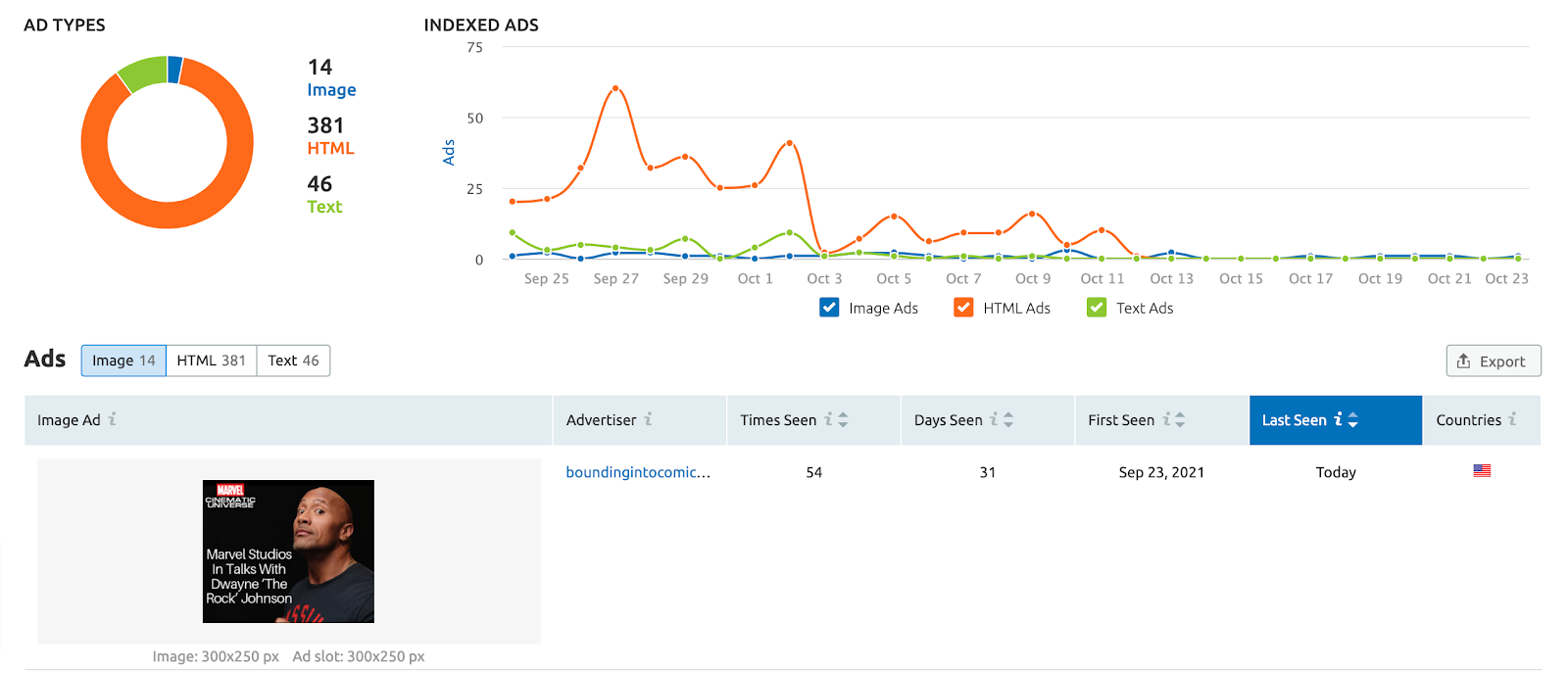
7. Paid Social Campaigns
Similar to Google Display and Remarketing, paid social platforms such as Facebook and Instagram, Linkedin, YouTube, Twitter, and more will allow you to place ads in front of your target market while still maintaining a local focus.
In order to choose the best social platform for your business, think about your target market and which platform they are most likely to be active on. Test different ad formats and targets to see which performs best for you!
Pro tip: Check out Semrush’s Social Media Ads to create ad campaigns, monitor their performance, and get insights on how best to optimize them.
8. Local SEO for Your Website Other Than Maps Listings
Beyond your maps listings, you’ll want to ensure that you are diligently working toward improving your local SEO so that you are able to rank for your searches for your products or services when people are searching locally.
I will be the very first to say that local SEO isn’t my area of expertise, but Semrush has a full suite of tools dedicated to helping you with your local SEO efforts.
In fact, if you want to see how your website is doing, you can get a free site audit from Semrush. You’re limited to 100 pages crawled per audit per month on a free account, so you’ll need a paid account to perform a larger audit.
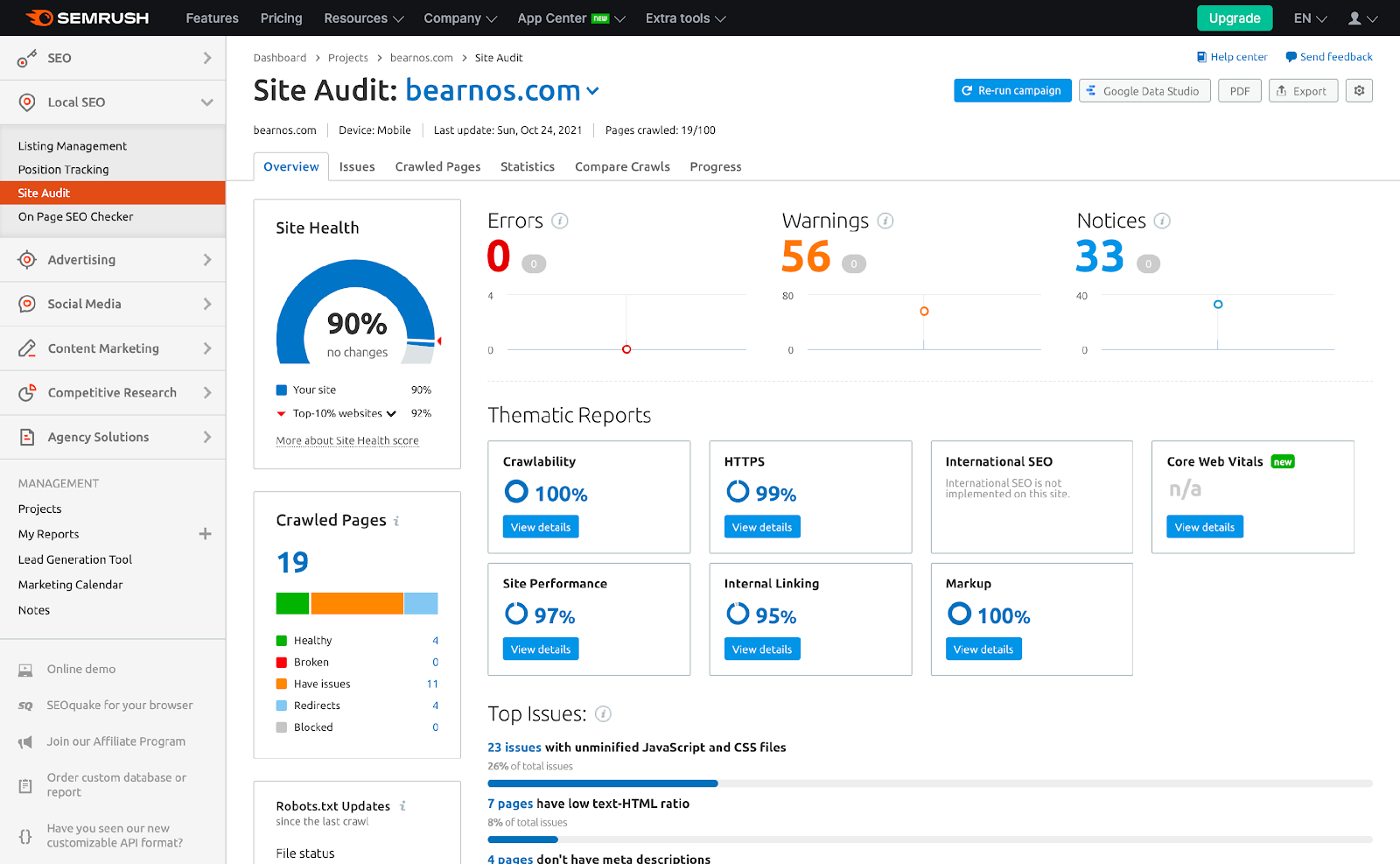
9. Collect Email Addresses & Keep in Touch
Email marketing is an easy and effective way to drive more sales. The best part is that many email marketing platforms are cheap (or even free) for users that are just getting started and have small lists.
Be diligent about asking for folks to provide their email addresses when they engage with your business. This will allow you to communicate with them for free, or at a low cost, in the future when you are ready to publicize things such as sales or the announcement of new products or services.
In the interim, email marketing also allows you a unique opportunity to share your expertise on a regular basis, so that you stay top of mind. You can send a weekly or monthly newsletter with useful content to keep them engaged with your business even when they aren’t in-market to make a purchase. That way when they are ready to make a purchase, they think of you!
10. Reputation Management
Reputation management is a broad category of marketing efforts that, put simply, means that you are aware of the ways that people talk about your brand in the market (positive or negative) and are actively working to make the best of it.
A big piece of reputation management is collecting, monitoring, and responding to reviews. Be aware that the reviews that are written about your business will be many prospects’ first impressions of you. If they see negative reviews, they’ll think twice about whether they want to do business with you.
Respond to reviews, including negative ones, in a constructive and positive way. Moreover, use those reviews to improve your business operations.
With Semrush’s Listing Management tool, you can respond to Facebook and Google Business Profile reviews directly from the Semrush interface! Note that you’ll need to opt for a Premium Location within the tool to use this feature.
11. User-Generated Content
One of the most effective ways to boost credibility is to share experiences from happy customers. What better way than to let them tell the story themselves? If you’ve curated a base of happy customers, one way to effectively capitalize on their stories is by encouraging or even incentivizing user-generated content.
Ask your customers to share pictures or videos of themselves on your social media, or to submit them to you through a landing page for a chance to be featured. These stories allow future prospects to see your business through your customers’ eyes and sometimes, to a consumer, that feels a bit more trustworthy than hearing what a brand has to say about itself.
Summary
In summary, there are so many valuable ways to increase your digital presence locally. I highly recommend testing different initiatives and identifying where you see the best return, and scaling from there!
Innovative SEO services
SEO is a patience game; no secret there. We`ll work with you to develop a Search strategy focused on producing increased traffic rankings in as early as 3-months.
A proven Allinclusive. SEO services for measuring, executing, and optimizing for Search Engine success. We say what we do and do what we say.
Our company as Semrush Agency Partner has designed a search engine optimization service that is both ethical and result-driven. We use the latest tools, strategies, and trends to help you move up in the search engines for the right keywords to get noticed by the right audience.
Today, you can schedule a Discovery call with us about your company needs.
Source:





